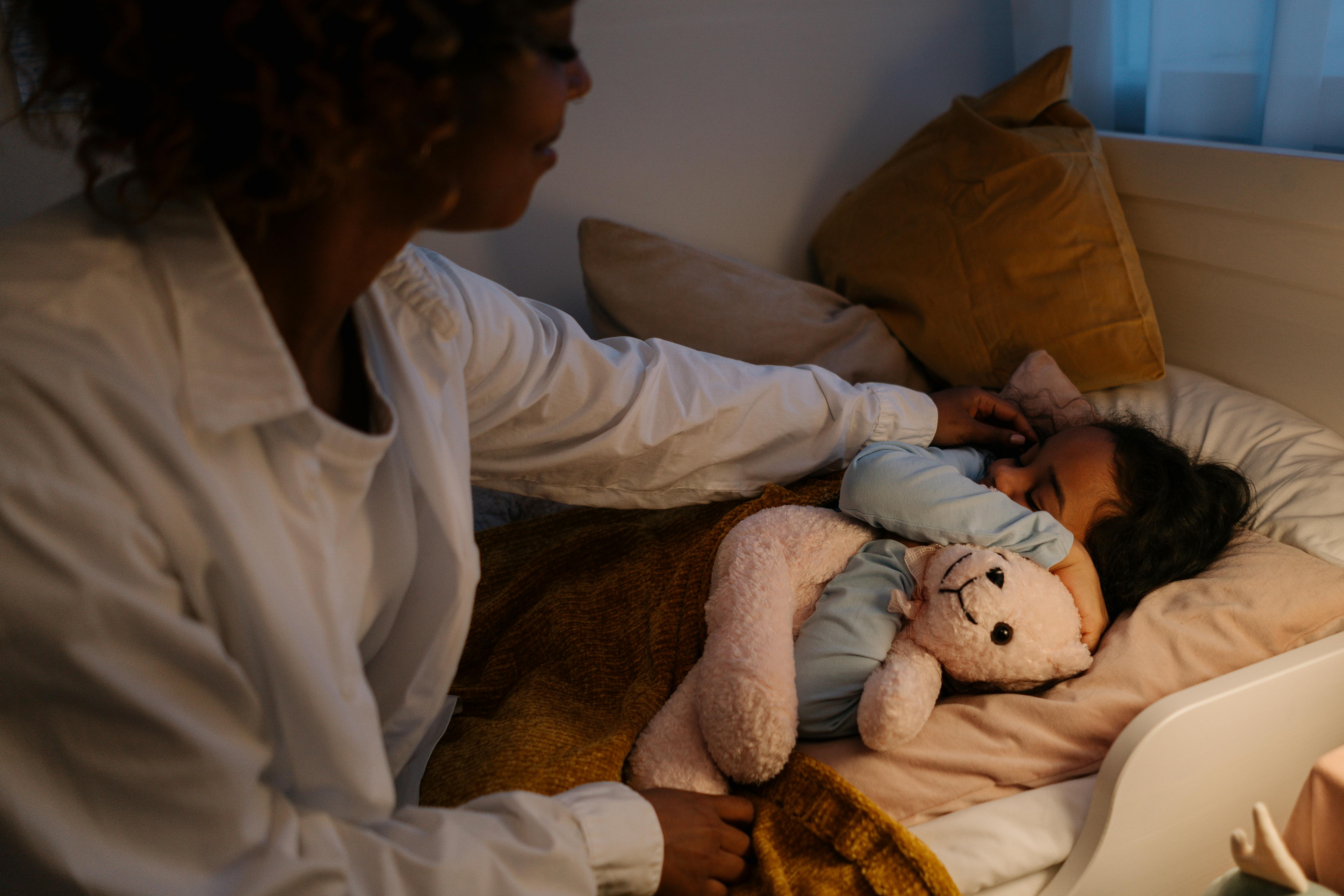Sleep regression at 15 months can be a challenging phase for both parents and toddlers. Known as the 15-month sleep regression, this stage is marked by sudden disruptions in your child’s sleep patterns, often leaving families searching for effective solutions. Toddlers at this age typically need 11–14 hours of sleep in a 24-hour period, including naps, according to the CDC, making disruptions during the 15-month regression especially noticeable. In this comprehensive guide, we’ll help you recognize the signs, understand the causes, and implement actionable strategies to restore restful nights for the entire family.
What Is a 15-Month Sleep Regression?

A sleep regression is a temporary phase where a toddler, who was previously sleeping well, begins to wake frequently at night, resist naps, or have difficulty falling asleep. The 15-month sleep regression often coincides with significant developmental milestones, such as walking, language acquisition, or cognitive growth, which can temporarily disrupt sleep routines.
Common Signs of a 15-Month Sleep Regression

- Frequent Night Wakings: Your toddler wakes up more often during the night, seemingly without reason.
- Nap Resistance: Struggles with falling asleep during regular nap times or shorter naps.
- Increased Clinginess: Seeking extra comfort, such as wanting to be held or needing a parent’s presence to fall asleep.
- Irritability or Fussiness: A crankier demeanor during the day due to poor sleep.
- Changes in Appetite: Eating more or less than usual, as sleep and eating habits are interconnected.
- Difficulty Falling Asleep: Longer periods of restlessness before bedtime.
What Causes the 15-Month Sleep Regression?

Understanding the root causes of this sleep regression can help you address it more effectively. Sleep regressions at 15 months are a normal part of development, occurring in many toddlers as they navigate walking, language, and cognitive milestones (Mayo Clinic). Key factors include:
- Developmental Milestones
- At 15 months, your toddler is likely mastering new skills, such as walking, running, or communicating. This mental and physical development can make it more challenging for them to relax and settle down at bedtime.
- Separation Anxiety
- As children become more aware of their surroundings, they may develop stronger attachment behaviors, leading to a fear of being left alone during sleep.
- Teething
- Molars often erupt around this age, causing discomfort that disrupts sleep.
- Sleep Schedule Changes
- Transitioning from two naps to one can alter sleep rhythms, creating temporary confusion in their routine.
- Environmental Factors
- Changes in the child’s environment, such as a move, new caregivers, or family stress, can also contribute to disrupted sleep patterns.
How to Manage the 15-Month Sleep Regression: Practical Tips for Parents

While this phase can be frustrating, implementing the following strategies can ease the process and restore your toddler’s sleep:
- Stick to a Consistent Routine
- Maintain a predictable bedtime and nap schedule. Comforting routines like a warm bath, storytime, or soft lullabies can help indicate that it’s time to relax and prepare for sleep.
- Address Discomfort
- If teething is the issue, provide teething toys or consult your pediatrician about pain relief options. Create a sleep environment that is cozy and promotes peaceful rest for your child. Additionally, dress your baby in soft and breathable fabrics for better sleep.
- Offer Reassurance
- If your child is experiencing separation anxiety, offer comfort without establishing new sleep dependencies. For instance, consider brief check-ins or a soothing object like a blanket.
- Encourage Independent Sleep
- Teach your toddler to self-soothe by placing them in their crib while drowsy but still awake. This encourages them to develop the ability to soothe themselves back to sleep independently.
- Optimize the Sleep Environment
- Create a dark, quiet, and cool sleep environment. Consider blackout curtains, white noise machines, or a bedtime light to foster relaxation.
- Limit Screen Time
- Avoid screen exposure at least one hour before bedtime to reduce overstimulation.
When to Seek Professional Help
If your toddler’s sleep issues persist for several weeks or impact their overall well-being, it may be time to consult a pediatrician or sleep specialist. Persistent sleep troubles can sometimes signal underlying issues, such as sleep apnea or other medical concerns.
FAQs About the 15-Month Sleep Regression
1. How long does the 15-month sleep regression last?
Most toddlers go through this phase for 2–6 weeks, depending on their individual development and sleep habits (AAP).
2. Can sleep training help during this regression?
Yes, reinforcing positive sleep habits during this time can provide long-term benefits.
3. Should I drop a nap during the 15-month regression?
Transitioning to one nap may be appropriate if your toddler resists the second nap, but monitor their behavior for signs of overtiredness.
Final Thoughts
The 15-month sleep regression might feel like a never-ending phase, but with consistent strategies and a calm approach, it will pass. Remember, it’s okay to seek support—whether that’s from your pediatrician or other parents going through the same thing. Track your child’s patterns, respond with empathy, and trust that restful nights will return soon.
Understanding how much sleep toddlers need can help you better manage routines during the 15-month sleep regression and ensure your child is getting adequate rest for healthy growth. According to the CDC, toddlers need 11–14 hours of sleep in 24 hours, including naps, to support healthy development.
Read also: How to Dress Baby for Sleep: A Simple Guide for Peaceful Nights
References:
Disclaimer: This article is for informational purposes only and is not a substitute for professional medical advice. Always consult your pediatrician for concerns about your child’s sleep.
